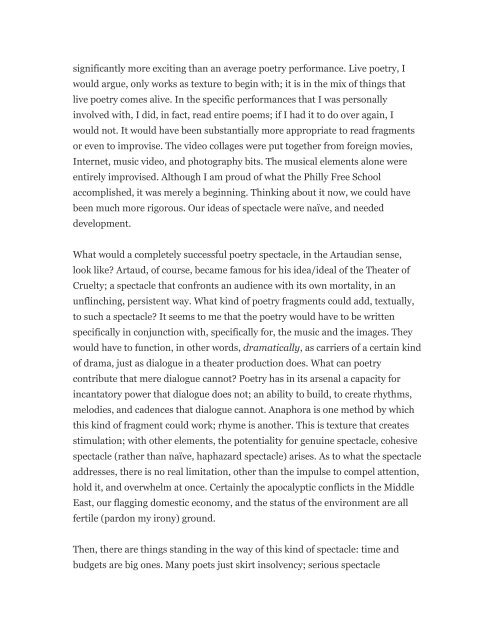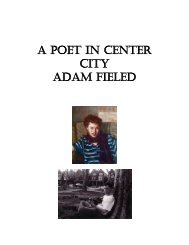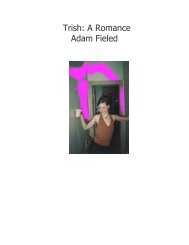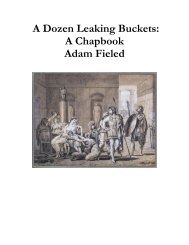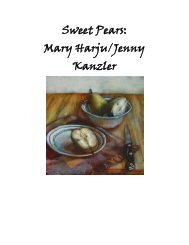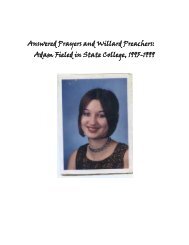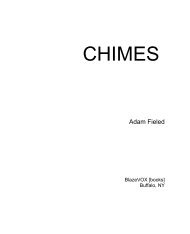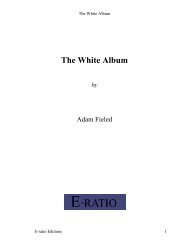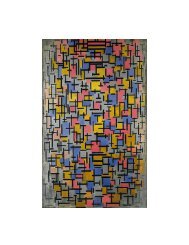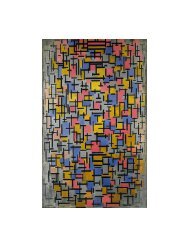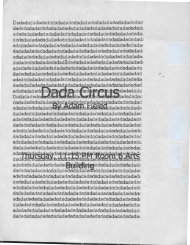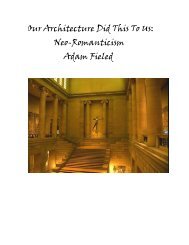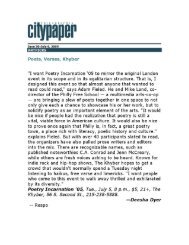FROM OTOLITHS 16: Editor Interview
A pdf from Otoliths Issue # 16: Ed. Interview with Adam Fieled and his article about the Philly Free School
A pdf from Otoliths Issue # 16: Ed. Interview with Adam Fieled and his article about the Philly Free School
Create successful ePaper yourself
Turn your PDF publications into a flip-book with our unique Google optimized e-Paper software.
significantly more exciting than an average poetry performance. Live poetry, I<br />
would argue, only works as texture to begin with; it is in the mix of things that<br />
live poetry comes alive. In the specific performances that I was personally<br />
involved with, I did, in fact, read entire poems; if I had it to do over again, I<br />
would not. It would have been substantially more appropriate to read fragments<br />
or even to improvise. The video collages were put together from foreign movies,<br />
Internet, music video, and photography bits. The musical elements alone were<br />
entirely improvised. Although I am proud of what the Philly Free School<br />
accomplished, it was merely a beginning. Thinking about it now, we could have<br />
been much more rigorous. Our ideas of spectacle were naïve, and needed<br />
development.<br />
What would a completely successful poetry spectacle, in the Artaudian sense,<br />
look like? Artaud, of course, became famous for his idea/ideal of the Theater of<br />
Cruelty; a spectacle that confronts an audience with its own mortality, in an<br />
unflinching, persistent way. What kind of poetry fragments could add, textually,<br />
to such a spectacle? It seems to me that the poetry would have to be written<br />
specifically in conjunction with, specifically for, the music and the images. They<br />
would have to function, in other words, dramatically, as carriers of a certain kind<br />
of drama, just as dialogue in a theater production does. What can poetry<br />
contribute that mere dialogue cannot? Poetry has in its arsenal a capacity for<br />
incantatory power that dialogue does not; an ability to build, to create rhythms,<br />
melodies, and cadences that dialogue cannot. Anaphora is one method by which<br />
this kind of fragment could work; rhyme is another. This is texture that creates<br />
stimulation; with other elements, the potentiality for genuine spectacle, cohesive<br />
spectacle (rather than naïve, haphazard spectacle) arises. As to what the spectacle<br />
addresses, there is no real limitation, other than the impulse to compel attention,<br />
hold it, and overwhelm at once. Certainly the apocalyptic conflicts in the Middle<br />
East, our flagging domestic economy, and the status of the environment are all<br />
fertile (pardon my irony) ground.<br />
Then, there are things standing in the way of this kind of spectacle: time and<br />
budgets are big ones. Many poets just skirt insolvency; serious spectacle


